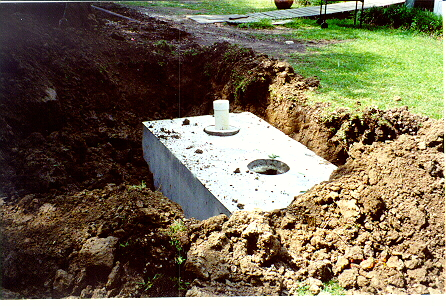Perhaps you just moved into a new home or you are considering moving into one that has a septic system; you need to learn important septic maintenance factors. Trying to replace the entire septic tank system can dent your wallet heavily and, as such, you are better off learning proper septic tank maintenance so you can extend the useful life of the tank and avoid any unnecessary repairs and replacements.
How it works: The septic system removes waste from your home if you aren’t connected to the municipal sewer system; all the waste water flows through pipes into the septic tank that will be buried underground. There is bacteria in the tank that helps to break down those bigger waste particles so that they sink to the bottom forming a sludge layer. The effluent-the liquid waste that is above the sludge will then flow out of the septic tank into the leach field or drain field where it will also be broken down by the bacteria in the soil until it is finally absorbed into underground water. There is a third layer that is known as the scum layer which consists of oils, fats and proteins that do not flow into the drain field.
Routine maintenance: Your system requires periodic septic tank pumping and the exact duration between the pumping will be determined by the size of the tank, the water usage in your home as well as other factors. The key to proper septic maintenance is being able to stick to a regular pumping schedule; this may involve calling in a professional to thoroughly inspect your septic tank once every two years and also pump the solid waste out of the tank. If the sludge layer is allowed to become too thick the bacteria will end up becoming ineffective in dissolving the waste and the effluent will henceforth stop transferring to the drain field effectively. It’s very important to ensure that routine septic tank maintenance is done by a professional since the bacteria and gases in the tank can be hazardous to human health.
Everyday care: Septic maintenance is also affected by what you do every day and it will also determine how long you are likely to stay between professional septic tank pumping sessions. One important practice that will put a smaller demand on your septic system and the drain field is learning water conservation. You may also want to make simple changes such as adding aerators to your faucets as well as fixing leaks in the plumbing. Apart from water usage, take extreme care to avoid flushing solid waste down the drain; use garbage disposal services so that food particles don’t find their way to the septic tank.
















